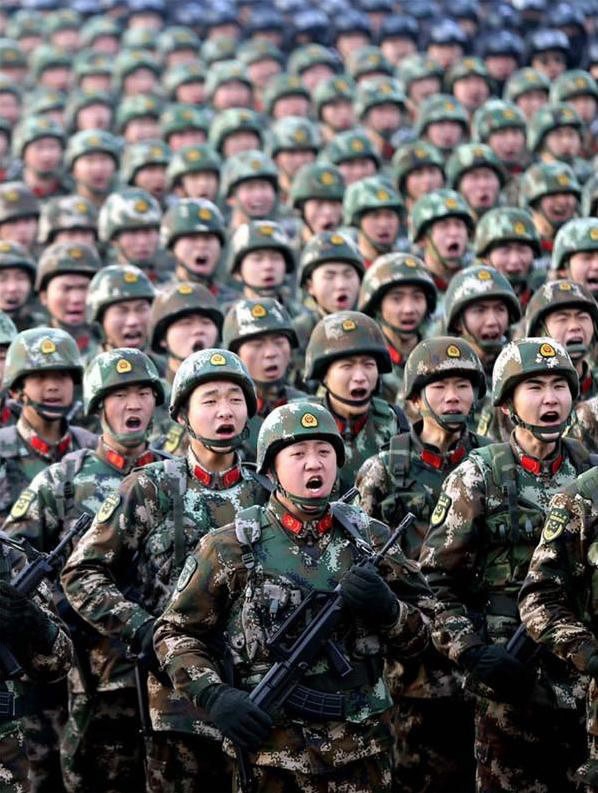By CGTN's Han Peng
Lawmakers from the Xinjiang Uygur Autonomous Region have vowed to do their utmost to stabilize the terrorist prone region, as they met the press during the National People's Congress (NPC) session in Beijing.
Their statement comes after President Xi Jinping called for stricter security measures in the region and to build what he calls a "Great Wall of Iron" against terrorism.

Mass rally of armed police in Xinjiang /CNR Photo
Shaerheti Ahan, secretary of Xinjiang's Political and Legal Committee, said: "Xinjiang has made stability a central goal in its government work, because the region still faces uncertainty amid the global rise of terrorism, despite its internal improvements in security."
Last month, Xinjiang authorities marched thousands of armed officers through the region's southern city of Hotan, while in its northern prefecture of Bayingol, they ordered all cars to install GPS tracking devices.
The far-west region of China was rocked by deadly terrorist attacks between 2009 and 2014, but over the past two years the number of such attacks has diminished somewhat and the chairman of the regional government argued that this was good news for its economy.
"Stability brings growth," said Shohrat Zakir, chairman of the Xinjiang Uygur Autonomous Region. "Xinjiang's GDP saw 7.6 percent growth last year, almost one percent higher than the national rate."
He added the region received a record 80 million tourists last year - almost four times its population.
Meanwhile, Xinjiang also launched preferential policies for all residents in the region.
Zakir said: "We have made high schools in the underdeveloped south free for all students, which means they now enjoy 15 years of free education, rare across the country. We also offer all residents of Xinjiang a free medical check every year."
China hopes that an "iron wall" in the face of terrorism, and preferential policies for residents will safeguard the stability of the vast western region.









